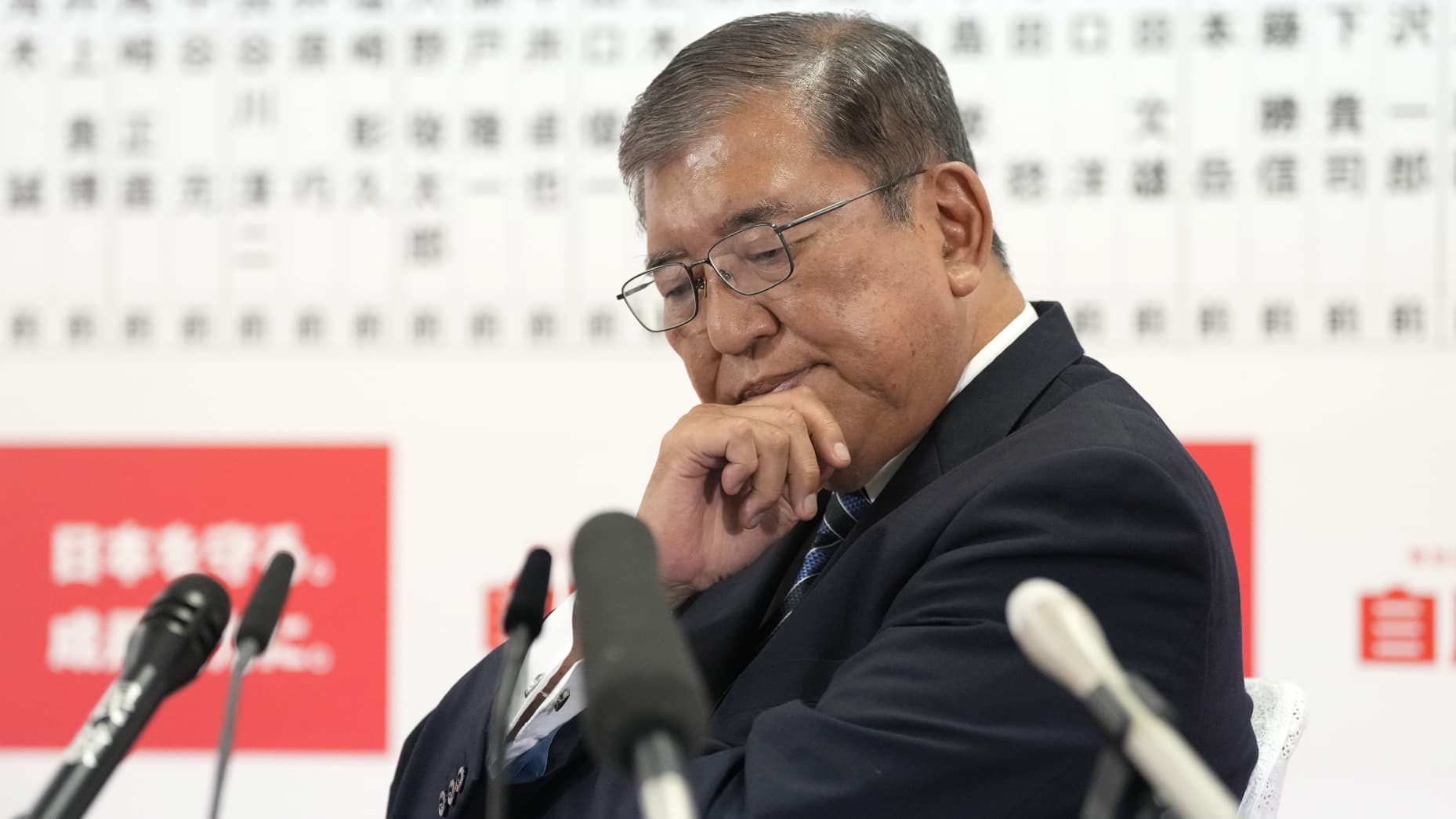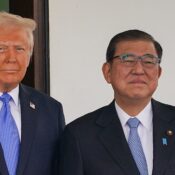
Japanese ruling alliance loses majority; poll results are still unclear
In Sunday’s national election, Japan’s ruling party lost its parliamentary majority in a landslide. This makes it harder to predict who will be in charge of the next government and what the future holds for the world’s fourth-largest economy.
An NHK report said that Prime Minister Shigeru Ishiba’s Liberal Democratic Party (LDP), which has run Japan for almost all of its post-war history, and its junior coalition partner Komeito won 209 of the 465 seats in the lower house of parliament.
The alliance had held 279 seats before the election, so this was their worst election result since they briefly lost power in 2009.
“This election has been very hard for us,” Ishiba told TV Tokyo with a sad face.
Keiichi Ishii, who became the new leader of Komeito last month, lost in his district.
The major opposition party, the Constitutional Democratic Party of Japan (CDPJ), won the most seats that night. It now has 143, up from 98 before. Voters punished Ishiba’s party over a funding scam and inflation.
The result could force parties to make tense power-sharing deals in order to rule, which could lead to political uncertainty at a time when the country is facing tough economic times and a tense security situation in East Asia.
“This is not the end, but the beginning,” CDPJ head Yoshihiko Noda told reporters. He also said that his party would work with other opposition groups to try to get the government changed.
Ishiba said he would not think about alliances or other power-sharing deals until he saw the final results, which should be out early Monday morning.
In order to get the people to support his leadership as prime minister, the prime minister called the election right after becoming party leader last month. Before him, Fumio Kishida quit because his support dropped because people were angry about the rising cost of living and the scandal involving gifts to politicians that were not recorded.
It was also held nine days before the most important election in the world: the one in the United States, which is Japan’s closest friend.
MARKET JITTERS AND POLITICAL DEALS
As investors deal with the confusion, Japanese stocks (.N225) and the yen are likely to go down, while longer-term government bond prices are likely to go up.
“The voters were harsher on the ruling bloc than we thought,” said Saisuke Sakai, a senior economist at Mizuho Research and Technologies.
“Uncertainty over the administration’s continuity has increased, and the stock market is likely to react tomorrow with a sell-off, especially among foreign investors.”
Since it came back to power in 2012 after a short time in opposition, the LDP has had a clear majority. A short-lived government made up of seven rival groups in 1993 also took power away from it for a short time.
The Japanese Innovation Party (JIP) or the Democratic Party for the People (DPP) could now be very important for building a government.
NHK said that the DPP had 27 seats and the Japan Innovation Party had 35 seats at this point. But both plans go against what the LDP says should be done.
It’s possible for the DPP and the alliance led by the LDP to work together, but Nobuyuki Baba, the head of the Innovation Party, has turned down the idea.
The DPP wants to cut Japan’s 10% sales tax in half until real wages rise. The LDP does not agree with this plan. The Innovation Party, on the other hand, wants to clean up politics by making it harder to give money to candidates.
At a Tokyo voting station, 39-year-old office worker Keisuke Yoshitomi said, “The DPP is focused on making the country better and making sure financial resources are allocated more appropriately, so that’s why I decided to vote for them.”
The Bank of Japan (BOJ) could also have trouble with politics if Ishiba picks a partner that wants to keep interest rates close to zero when the central bank wants to slowly raise them.
The Innovation Party is against raising interest rates even more, and the leader of the DPP has said that the BOJ may have raised rates too quickly. The central bank wants to slowly wean Japan off of decades of huge monetary support.
Masafumi Fujihara, an associate professor of politics at Yamanashi University, said, “A more unstable political landscape will make it much harder to push through economic policies that include raising taxes, like to pay for defense spending.”
“Without a strong government, it would be more difficult for the BOJ to raise rates and keep the weak yen under control.”
All Categories
Recent Posts
Tags
+13162306000
zoneyetu@yahoo.com



